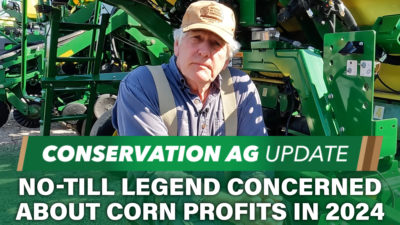An Agricultural Research Service (ARS) scientist is looking for cover crop perennials that provide the best balance in biofuel production between agronomic success and environmental sustainability.
ARS agronomist Jeremy Singer, who works at the National Soil Tilth Laboratory in Ames, Iowa, is conducting this research as part of a three-component study of optimizing corn cultivation for biofuel production. He’s evaluating perennial grass crops to assess their potential for mitigating soil erosion and enhancing soil organic matter even in fields where every bit of corn and stover — stalk, leaves and all — is harvested either for grain or cellulosic ethanol production.
Perennial groundcovers’ root systems may contribute enough carbon to the soil to offset the loss of carbon when stover is removed. Cover crops also provide habitat for beneficial insects, facilitate water infiltration, help hold nitrogen in the soil, suppress weeds and reduce the runoff of agricultural chemicals.
Results from Singer’s first season in the field indicated that white clover or Kentucky bluegrass were promising cover crop candidates worthy of additional study. On the other hand, creeping red fescue added notable amounts of carbon to the soil, but was very competitive with corn.
When the optimum groundcover has been identified, using no-till and strip-till cultivation practices in the corn-groundcover system will reduce the amount of fossil fuel needed to prepare and plant the crops. This reduced tillage, in turn, will decrease greenhouse gas emissions and require fewer energy inputs than using conventional tillage — another prospective plus for farmers and fields alike.






Post a comment
Report Abusive Comment